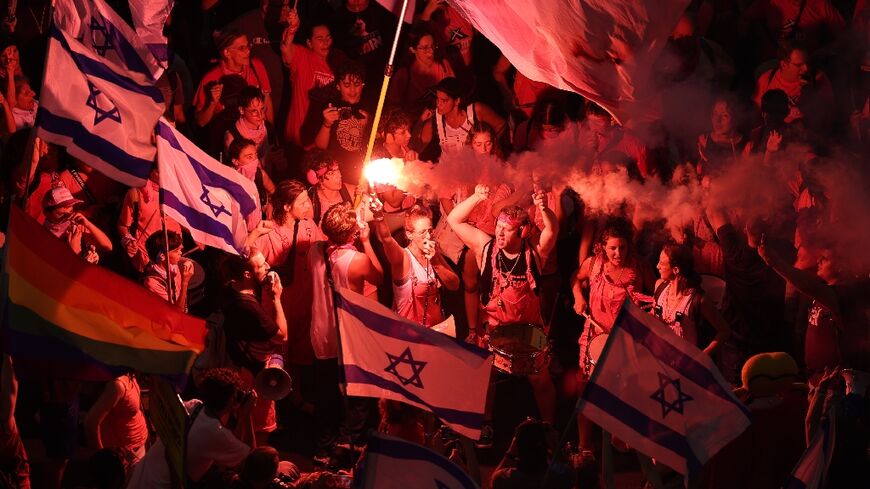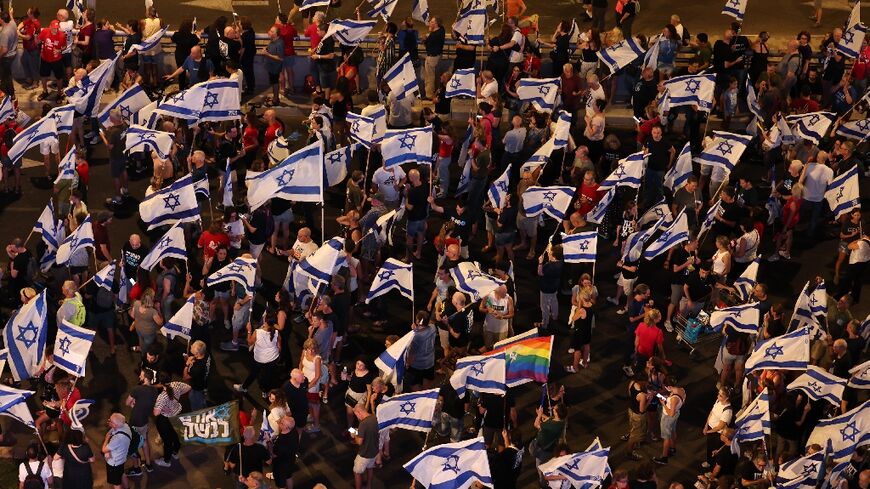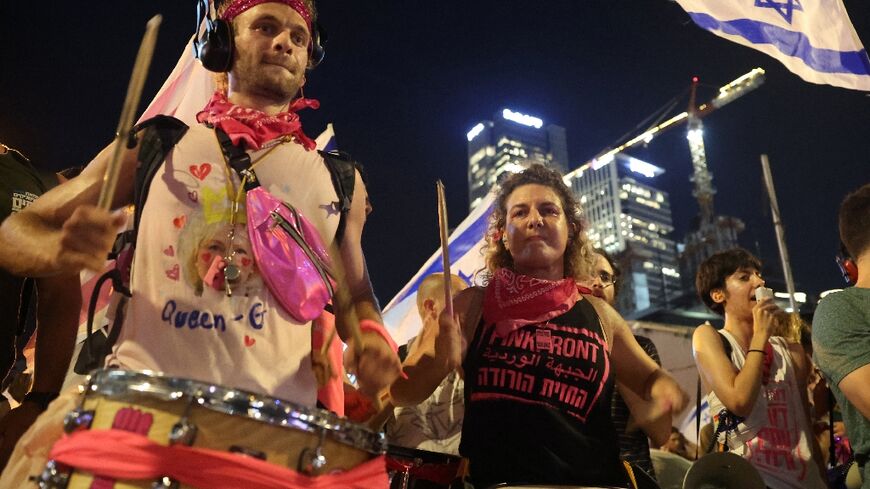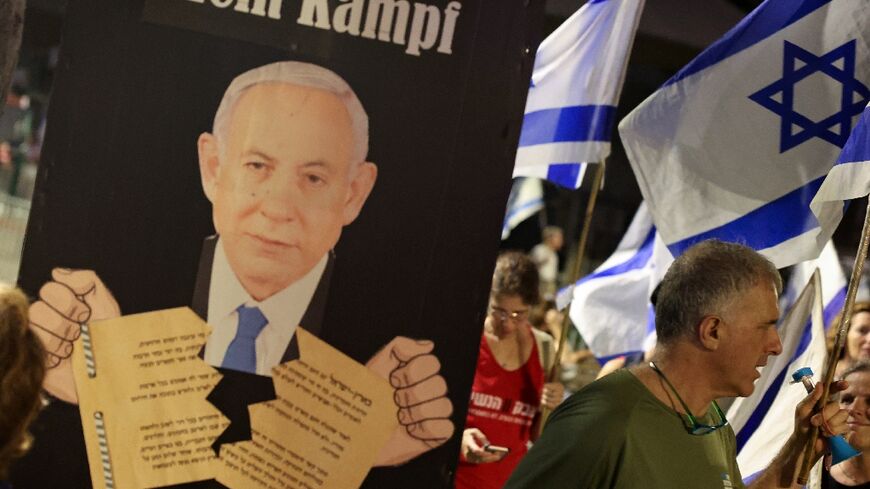'Democracy, Democracy' chant Israelis protesting legal reforms
Thousands of Israelis took to the streets of Tel Aviv on Saturday in the latest protest against the hard-right government's controversial judicial reform plans that opponents see as threat to democracy.
Since the government unveiled the reform package in January, tens of thousands of Israelis have joined weekly demonstrations in what has turned out to be the biggest protest movement in the country's history -- one that has split the nation.
While protests have rocked many cities including Jerusalem, the epicentre has been the commercial hub of Tel Aviv, where protesters have rallied every Saturday against Prime Minister Benjamin Netanyahu's government.
"Democracy, democracy," protesters chanted as they marched on Saturday. "We won't give up until it gets better."
"Despite months of protests, things are not going the way we wanted as one important part of the judiciary overhaul has been passed a few weeks ago," protester Ben Peleg, 47, told AFP.
"But if we continue to apply pressure on the streets, there is a possibility that we can still stop these changes."
Last month, the Israeli parliament voted to limit the so-called "reasonableness" law.
The new legislation curbs judicial review by Israel's top court of some government decisions, and critics fear it could pave the way to more authoritarian government.
Israel's traditional bedrock ally Washington has described parliament's vote as "unfortunate" and repeatedly raised concern about the political turmoil.
Netanyahu's coalition government, which includes far-right and ultra-Orthodox Jewish parties, argues the reforms are necessary to rebalance the relationship between elected officials and the judiciary.
Opponents accuse Netanyahu, who has been fighting corruption charges in court, of a conflict of interest.
It was the "reasonableness" clause that the Supreme Court cited in a recent high-profile ruling that barred a Netanyahu ally, Aryeh Deri, from serving in the cabinet because of his previous tax evasion conviction.
The amendment of the clause is the first major component of the reform package to become law.
Several petitions have been filed at the Supreme Court, with hearings set to be held in September.
Other proposed changes include allowing the government a greater say in the appointment of judges.
The protests have drawn support from across the political spectrum, among secular and religious groups, blue-collar and tech sector workers, peace activists and military reservists.
But months of demonstrations -- including some in support of the government -- have led to fears about widening fissures within Israeli society.
"Israel is being torn apart and we feel we are on the brink of a civil war," Peleg, a doctor, said.
"When we go out on the streets to protest, we are afraid of those who are supporting the government... This government needs to be overthrown."



